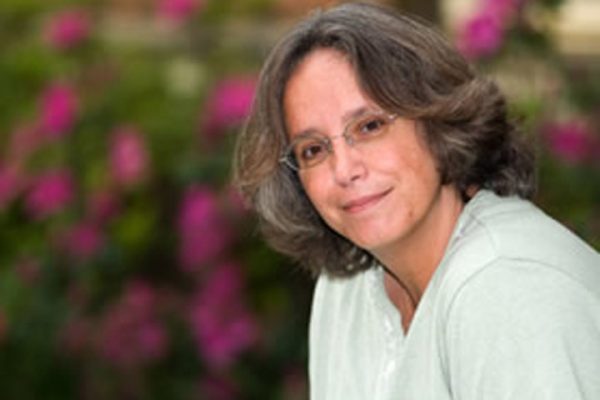
“I'm passionate about teaching science. If you value something, you make the time for it. I would be truly excited about establishing an environmental education program at the local-through-global level.”
“I love science because it helps me appreciate the beauty of our world. Everyone should understand science. It is through the scientific process that people make informed decisions about their day-to-day lives, for themselves and for their community,” says Renee Murray, a doctoral student in Science Education.
Renee’s home is Tallahassee—where she and her husband are raising their two “wonderful boys” and where she educates community members on how to care for the environment. On behalf of the Clean Lakes Project, her project was presented the Florida Section of the American Water Works Association’s Water Conservation Award of Excellence specifically for her development of a comprehensive environmental education outreach effort for Killearn Lakes Plantation. (See ‘Related Links’ for the website of this project.) She also combines her roles of parent and student by providing hands-on science activities at local elementary schools several times a year. “I promote science in a fun, exciting, and relevant manner. The children’s level of excitement, while learning, is very rewarding.”
Florida State is Renee’s academic home—here she’s received her bachelor’s degree in Biochemistry, her master’s in Public Administration, and will soon receive her doctorate in Science Education—and has been her place of employment for the past 14 years. As the Department of Environmental Health and Safety’s Chemical Safety Officer, Renee serves as one of the University’s resources for concerns regarding chemical and hazardous materials, which includes training faculty, staff, and students on how to deal with hazardous waste, and she also teaches first aid/CPR training.
While employed full time, she has continually expanded her “horizons and perspectives” by pursuing a graduate education. With a solid foundation in Biochemistry, Renee became interested in Public Administration, focusing on policy analysis, to better understand the internal processes of policy and decision making within public and private institutions. Her master’s project, “Mosquito Control at the District Level; Alternative Solutions for Public Health Officials for the Control of Mosquito-Born Diseases,” enabled her to “spread her scientific roots deeper into the administrative process to better understand the various barriers in scientific policy decision making.”
A doctorate in Science Education, she felt, would prepare her for teaching multifaceted science programs through a University to address concerns at the community level. “The process that brings educational relevance to science allows the individual to become aware of local issues; develop and acquire knowledge about environmental concerns; obtain skills to solve those concerns; and be a part of the solution.”
An example is her Drain Marker Project. “By having elementary children design the markers and emplace them throughout the community (including at the middle school) via the involvement of high school students, we could discuss non-point pollution, nutrient loading, eutrophication, mitigation techniques, and best management practices at the individual level, with teachers and residents, and at the project management level. The markers are daily reminders of the integrated efforts necessary to protect our surface waters and our environment.”
Renee says, “I’m passionate about teaching science. If you value something, you make the time for it. I would be truly excited about establishing an environmental education program at the local-through-global level.”




